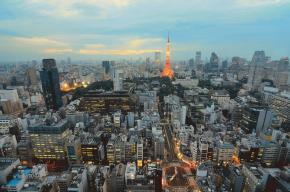
Japan is in a recession for the fifth time in 15 years.
That is particularly troublesome to Japan's 103 million registered voters who go to the polls Dec.16 to elect their seventh prime minister in the last seven years. They also will be voting in a total of 480 members to the House of Parliament.
Like the U.S. and several European neighbors, jobs and the economy are No. 1 on the minds of Japanese voters. The island country faces a debt of $6.1 trillion (500 trillion yen). That figure is 220 percent of its gross domestic product.
But even with a declining population of 127 million, the 146,000-square mile chain of 6,852 islands, still ranks as the world's 10th most populated country.
It is a country where the emperor, Akhito, is not the actual ruler or even the nominal head of state. The prime minister rules the country. He currently is Yoshihiko Noda.
Japan's Constitution, written in 1947, demoted the emperor to a "symbol of the state and of the unity of the people," stripping the emperor of all powers related to government.
Noda's challenge, and those of the other dozen candidates for the prime minister's post, is to find a trigger than will once again jump-start the world's third-largest economy. Like politicians in the U.S. and in several other nations, they are at odds on how to achieve that goal.
Former Prime Minister Shinzo Abe, a strong contender as head of the Liberal Democratic Party, favors forcing the Bank of Japan to do whatever it takes to meet an inflation target of about 2 percent. He says that would break the economy out of a spiral of falling prices known as deflation.
Abe resigned as prime minister in 2007 after just a year in office. He had health problems which, he says, are now under control. He accuses Prime Minister Noda of failing to spend enough on public works.
Noda's Democratic Party of Japan took power three years ago. He had pledged to end wasteful spending and the cozy ties between politicians and bureaucrats that dominated Liberal Democratic Party politics during its decades in power after World War II.
But the March 2011 disasters halted Noda's efforts to clean house. He was then obliged to call elections in exchange for gaining passage in June of this year of a highly unpopular sales tax increase.
The LDP ruled almost continuously for nearly 54 years from its founding in 1955 until its defeat in the 2009 election. Prior to 2009, the party had only been out of power for a brief 11-month period between 1993 and 1994.
The LDP is not to be confused with the now-defunct Liberal that merged with the Democratic Party of Japan, the main opposition party, in November 2003.

 By
By 